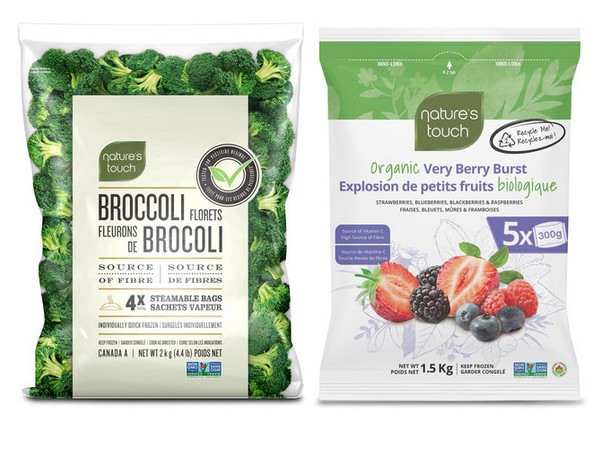As inflation surges, many families are struggling to find ways to continue eating healthy on a tight budget. Finding nutritious, tasty, and affordable foods at the supermarket can be challenging. Luckily, one brilliant tip for buying fruits and vegetables is to buy frozen products.
Why choose frozen fruits and vegetables?
According to a recent American Frozen Food Institute (AFFI) survey, more than one-quarter of consumers are buying more fruits and vegetables than they did three years ago. As the cost of living continues to rise, it's essential to spend wisely in order to eat well.
Canada's Food Guide recommends eating plenty of fruit and vegetables daily. However, one recent study from Dalhousie University revealed that less than one-third of Canadians buy enough fruits and vegetables to match the recommended amount.
Among the 1,500 people surveyed by the AFFI, 86% believe that having access to frozen produce helps them consume fruits and vegetables more easily. Here are four excellent reasons to include them in all your meals and snacks.
1. ECONOMIC
Frozen foods often cost less per serving and have a longer shelf life than fresh or refrigerated foods. Buying frozen is ideal for staying on budget during a period of economic recession while still achieving your goals of maintaining a healthy and balanced diet.
2. NUTRITIOUS
Contrary to popular belief, frozen products are no less nutritious than fresh food. Studies out of the University of Georgia and UC Davis, in partnership with the Frozen Food Foundation, revealed that the nutritional value of frozen fruits and vegetables is actually higher than their fresh counterparts. And they taste just as good!
Freezing preserves the flavour, freshness, and nutrients of freshly picked food. The nutritional qualities of plants harvested at maturity are often superior to the fruits and vegetables picked prematurely that have to travel thousands of kilometers in less-than-ideal conditions.
3. SUSTAINABLE
According to a study by the AFFI, the average consumer wastes ten times more fresh fruit and four times more fresh vegetables than frozen. Retailers experience a loss ratio of about one to six.
Frozen foods, on the other hand, are a zero-waste solution because you thaw only as much as you need. When you buy fresh fruits and vegetables, unless you eat them in time, they quickly lose their nutritional value. You could end up throwing away wilted produce, contributing to the astronomically high rate of daily food wastage in Canada.
According to a study published in the British Food Journal, buying frozen foods generates 47% less waste than fresh and refrigerated foods.
4. CONVENIENCE
Frozen foods are a time saver for families who cook at home. In fact, preparing fruits and vegetables usually requires a great deal of handling, such as washing, peeling, blanching, cutting, and cooking. Frozen products are ready to use, a strong argument for people pressed for time.
For more information: naturestouchfrozenfoods.com

